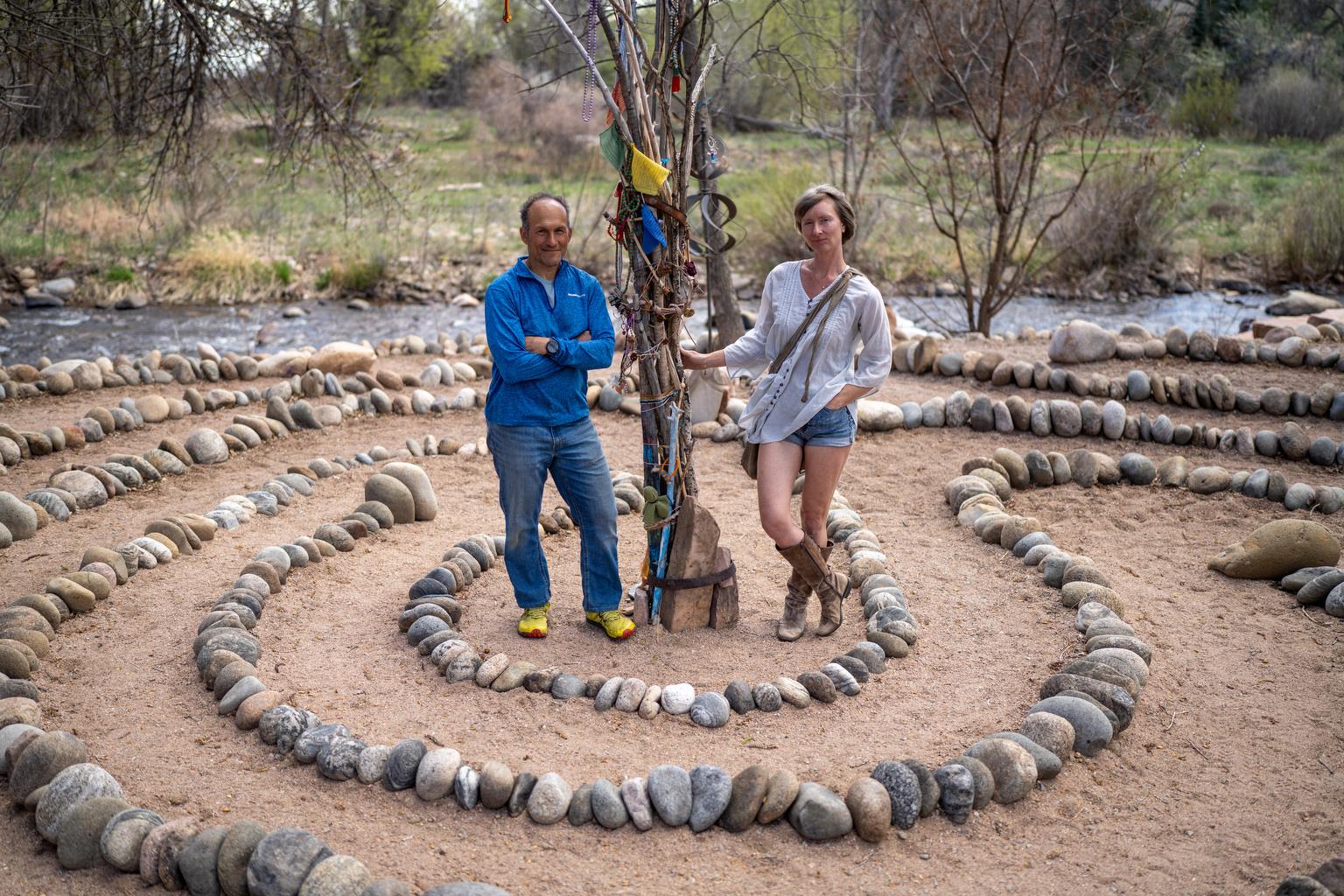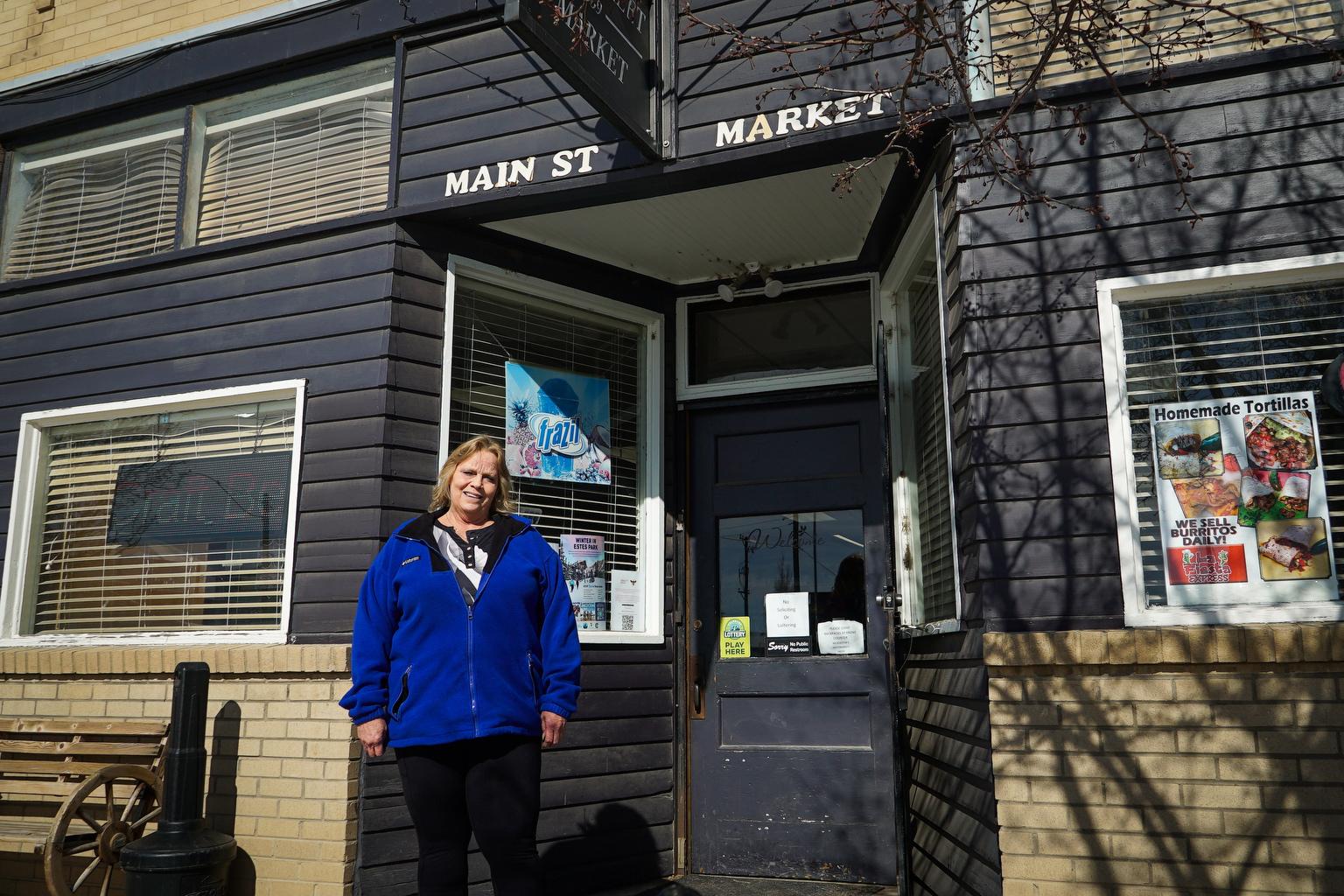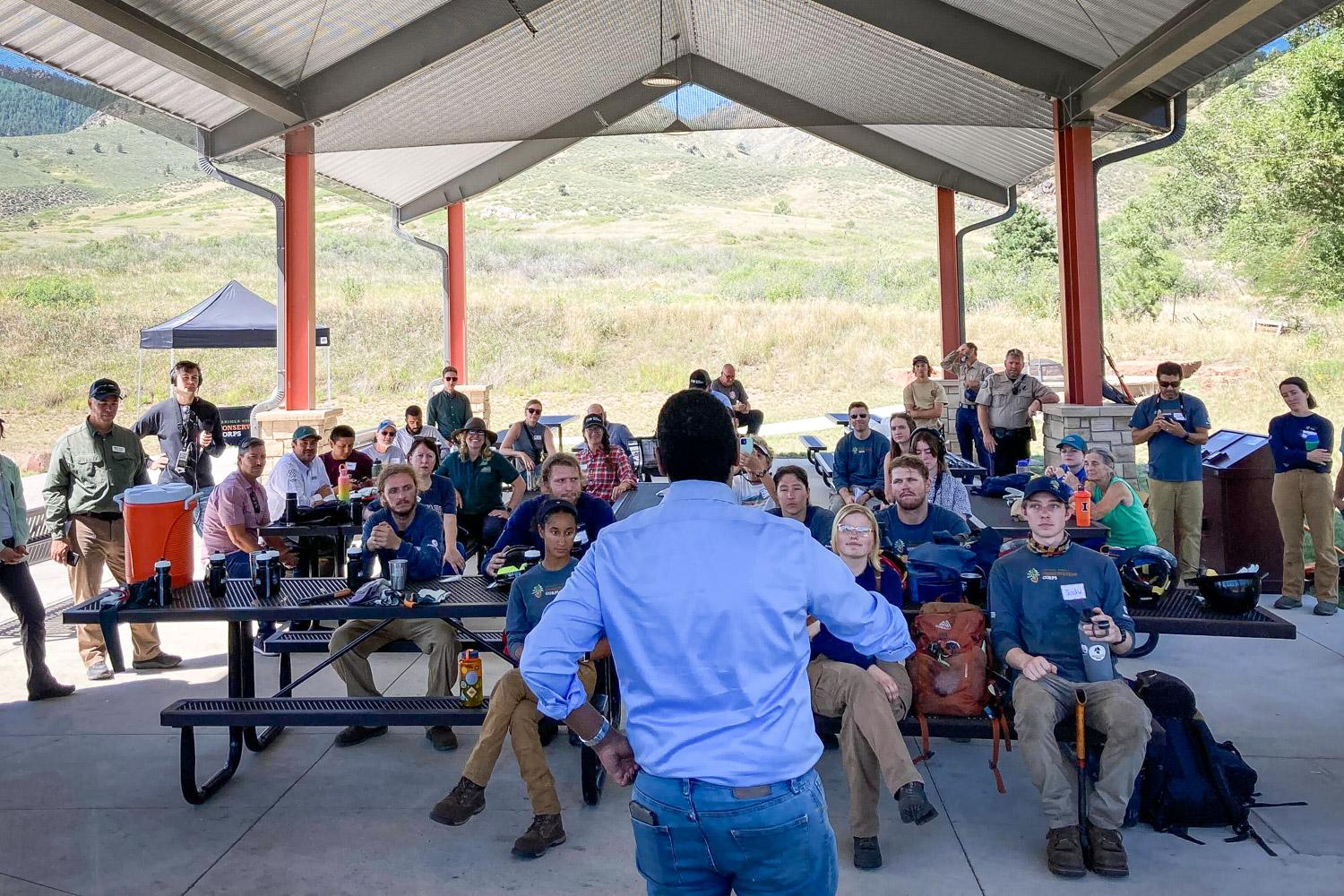
On a recent afternoon, about three dozen volunteers worked to clear out underbrush as part of wildfire mitigation work in Lory State Park, just outside of Fort Collins. They sawed off low-hanging and dead branches and hauled them out.
It was hard work on a hot day. And in the thick of it was Democratic Congressman Joe Neguse, work gloves on and his arms full of branches.
It was the soft relaunch of a signature Neguse initiative: the service town hall. The idea is to bring constituents together for volunteer work alongside the congressman while also getting a chance to hear from him about the issues. A town hall with a community-driven twist.
COVID-19 led many members of congress to move to telephone town halls, a controlled environment where staff can pre-screen participants’ questions. But even before the pandemic, meeting your member of Congress could be a rare thing. And events intended to share the latest developments from the nation’s capitol or address questions important to constituents often devolved into heckling and shouting matches.
For Neguse, adding a volunteer element is a way to avoid that outcome.
“It's hard to get mad at somebody when you're working alongside them in a project that's going to benefit the community,” Neguse explained while clearing out brush. The way he sees it, events like this are an opportunity for liberals, conservatives and everyone in between to work together. “My experience has been [that] these service town halls help turn down the temperature a bit.”
Before the pandemic, Neguse held service town halls at a homeless shelter, animal shelter, even Rocky Mountain National Park. He said at one earlier event he saw a political tracker — a person from the opposing side who records everything a candidate says in the hopes of catching a damaging moment — roll up his sleeves and get to work.
Maybe it's because everyone's tired or feeling a sense of accomplishment or a combination of the two that it’s easier to do what comes after the volunteering. And that, Neguse said is, “having an honest and candid and robust conversation about public policy issues and challenges that we're all facing together.”
This event involved local and state leaders, park employees, a handful of constituents and some members of Colorado’s conservation corps. Neguse calls them the nation’s future public lands managers and has pushed to create a national version. The FY23 budget passed in March included some funding, what Neguse described as a ‘downpayment,’ for a Civilian Climate Corps.
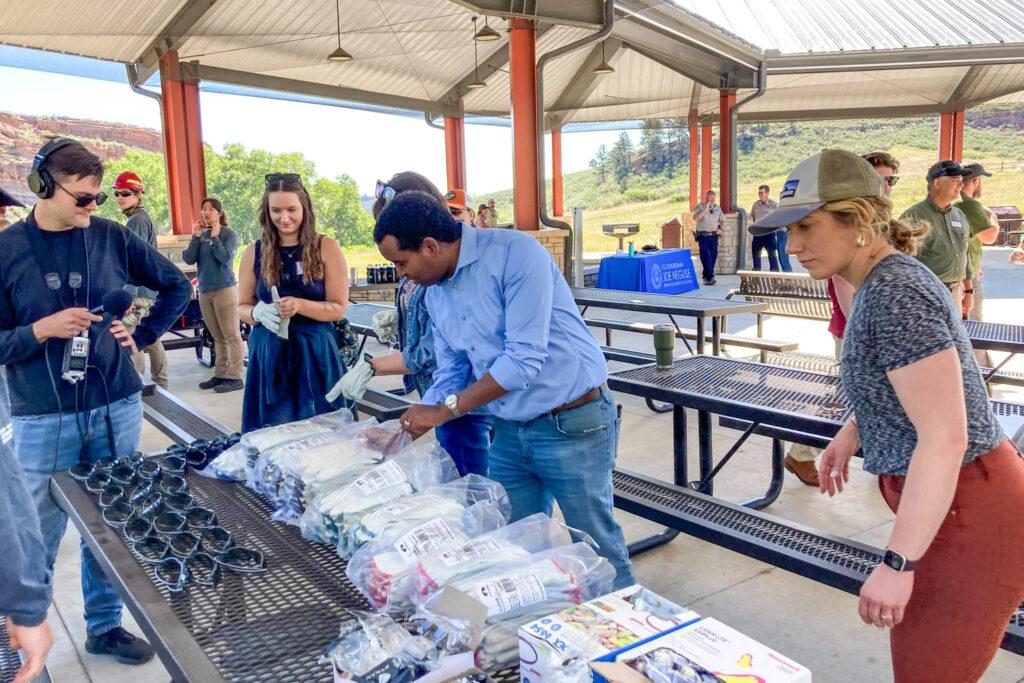
Because this was the soft relaunch of the service town hall, the group was kept small.
For the volunteers here, it’s a unique opportunity to actually interact with a member of Congress and vice versa.
“We spend our whole summer out here working for the people,” said Mark Samolej, leader of a local conservation crew. “For the people who are the real shakers or movers to actually care about us and spend the time with us, it's huge for us.”
On the flip side, James Calabaza, with the local nonprofit Trees, Water & People, believes this is a good opportunity for Neguse to hear about the needs of the community.
“The last few years, Colorado has been impacted by devastating, catastrophic wildfires,” he said. “So I see these town halls and the service learning service project (as) very beneficial to the community and to the land.”
And as far as Caley Ford, a recent Colorado State University Graduate, is concerned, it’s an “awesome” way to get information.
“It can be pretty indigestible to sit in front of people and just talk about things. I think it’s way more fun to actually get out there and do it and have a more hands-on event,” she said.
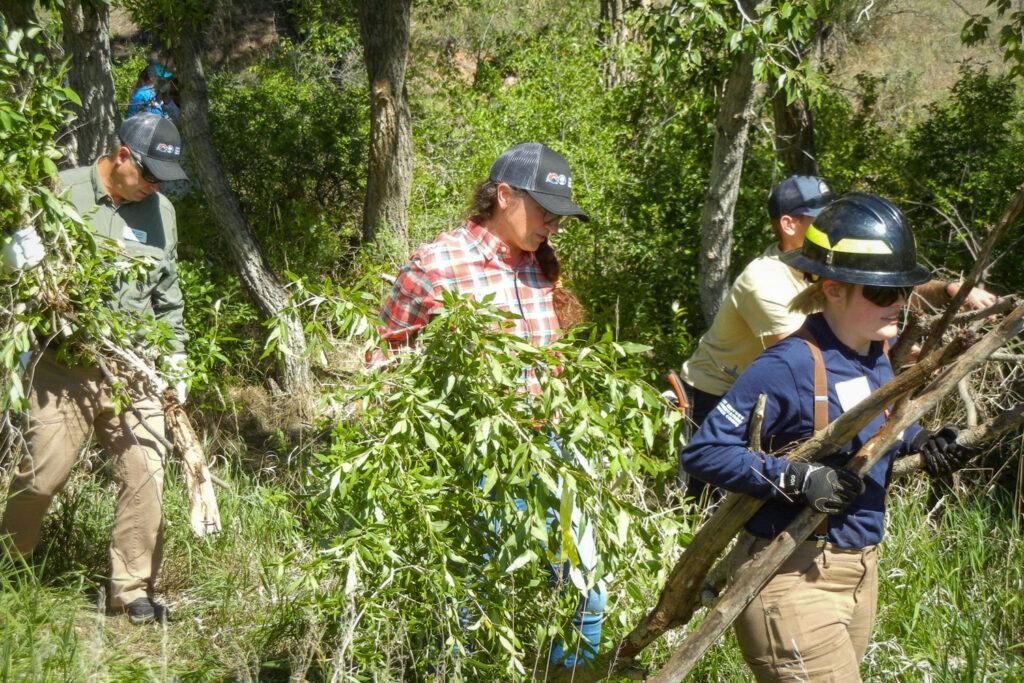
Neguse wasn’t the only elected official at the service town hall. Larimer County Commissioner Jody Shadduck-McNally, a Democrat, was also cutting and chopping with constituents. “I love this model and I’m here [because] I live in unincorporated Larimer County in a wildfire hazard area,” she said. Like Neguse, Shadduck-McNally wants to expand fire mitigation efforts and these types of conservation corps groups.
For about an hour, Neguse worked the forest floor, joking and answering questions as he cut and carried branches. But that’s not to say the traditional aspect of the town hall was left on the pile of dead wood. It just came at the end, when people stopped to grab water and shade. Then the audience got their chance to ask more formally about climate, wildfire legislation and even how Neguse wound up in the House. It was a friendly audience and a rather easy-going discussion.
When the event wrapped up, Diane Burton of Fort Collins said she wished there could be a service town hall or project like this every week. When she was younger, she wanted to work as a forest ranger, but at the time those jobs were closed off to women.
Now at 75, she’s retired, and her kids call her a full-time volunteer.
“What's the alternative? Sitting around watching TV or something?” she said. “I don't have any other hobbies. I don't knit, I don't really want a vacuum. So here I am.”
For many of the people gathered, it was their first time getting to interact with an elected leader.
“I think it's great, especially for people in politics and Congress to come down to a little bit lower of a level to actually connect with what they're passing, whether it's bills or laws and everything,” said Rhys Hilyard, who works at the park. “That way they are able to see what's going on at this kind of level for them to then make changes in the future, going forward.”
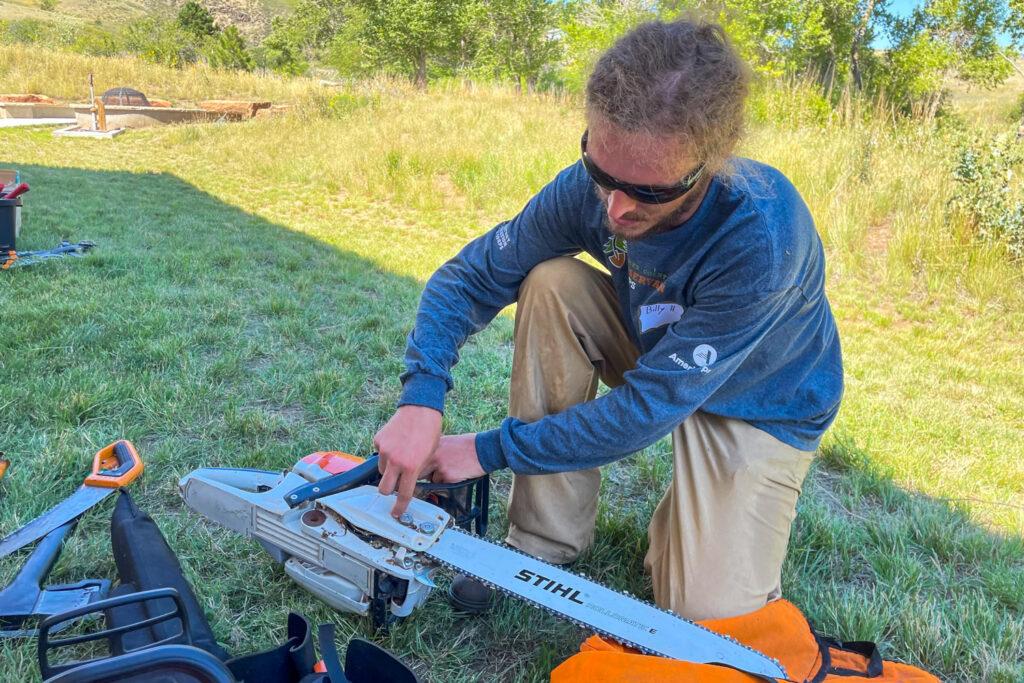
For Neguse it was a chance to work alongside the kind of conservation corps he’s trying to create nationally and to see the type of work they do firsthand.
Scott Segerstrom, executive director of the Colorado Youth Corps Association, said there’s a lot to like about this type of town hall format.
“This was about getting to meet the congressman, making sure that all our voices are heard. So most importantly, people feel good. They did something great for the community,” he said. “This is a home run to me.”
Jacob Castillo, director of Larimer County’s Economic and Workforce Development Department, echoed Segerstrom’s sentiment.
“What's evident in this work is that we're making a difference for the physical landscape of Colorado and at the same time investing in programs that help people gain knowledge, skills, and abilities to continue on a career pathway in this space.”
At the end, Neguse told the crowd that hopes to do more service events like this in the coming months.

